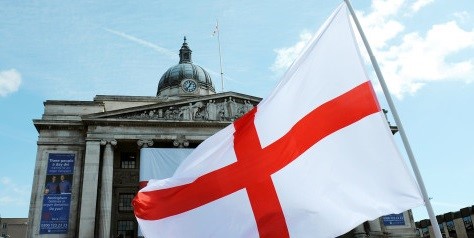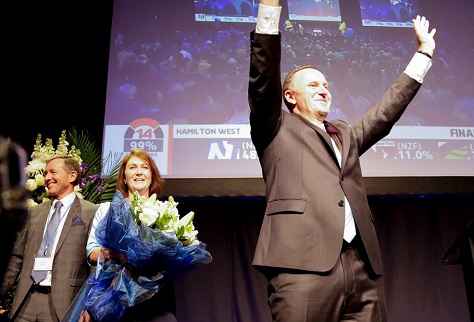Following the historic vote on Scottish independence, British prime minister David Cameron emerged early Friday morning to deliver remarks praising Scottish voters for keeping the United Kingdom (‘our country of four nations’) together.![]()
![]()
He promised to keep a pledge to enact rapid legislation devolving further powers to the Scottish parliament (‘devo-max’), but he simultaneously promised to propose reforms addressing the role of Scottish MPs on matters that are exclusively English in nature, responding to loud grumbling from English Tories that Scottish MPs shouldn’t have a vote on English matters and who have long cried, ‘English votes for English laws.’
In tying the issue of the promised Scottish devolution to the West Lothian question, Cameron was hoping to calm his own backbenchers, who, even before voters cast ballots in the September 18 referendum, briefing against the unfairness of the ‘Barnett formula,’ whereby Scottish residents receive greater per-capita government subsidy than English residents.
But that left Downing Street scrambling after both the pro-independence Scottish National Party (SNP) and the pro-union, center-left Labour Party attacked Cameron for trying to tie the two issues together. Alex Salmond, who announced plans on Friday to step down as first minister after losing the referendum by a 10% margin, alleged that Cameron was already backing away from his promise to the Scottish people:
Salmond said that no voters in the referendum would feel they had been “misled”, “gulled” and “tricked”. The first minister told the Sunday Politics on BBC1: “I am actually not surprised they are cavilling and reneging on commitments; I am only surprised by the speed at which they are doing it. They seem to be totally shameless in these matters. The prime minister wants to link change in Scotland to change in England. He wants to do that because he has difficulty in carrying his backbenchers on this and they are under pressure from Ukip.
“The Labour leadership of course are frightened of any changes in England which leave them without a majority in the House of Commons on English matters. I think the vow was something cooked up in desperation for the last few days of the campaign and I think everyone in Scotland now realises that.”
Cameron strongly hinted that his approach would limit the ability of Scottish (or Welsh or Northern Irish) MPs to vote on matters that apply solely to English legislation. That echoes calls from other high-profile Conservative leaders like chief whip Michael Gove.
But it would be politically controversial for at least two reasons. Continue reading Why England needs a series of regional parliaments


 Though the campaign featured more political scandal and innuendo about surveillance than policy discussion, Key has in two terms amassed a considerably solid record. In his first term, he helped to steady New Zealand’s economy in the depths of the global financial crisis, and he’s maintained generally solid GDP growth — around 2.5% in 2013 — in the face of a Chinese economic slowdown.
Though the campaign featured more political scandal and innuendo about surveillance than policy discussion, Key has in two terms amassed a considerably solid record. In his first term, he helped to steady New Zealand’s economy in the depths of the global financial crisis, and he’s maintained generally solid GDP growth — around 2.5% in 2013 — in the face of a Chinese economic slowdown.